Numerous witnesses have come forward to the Teatime Tattler with the following rather lurid story making the rounds of London salons and drawing rooms.
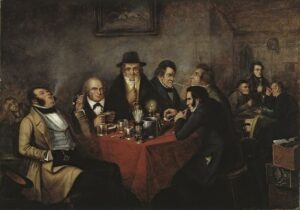 First a bit of background. Betting has raged the better part of summer and into autumn about the fate of the Duke of Glenmoor who went missing quite suddenly. Dukes do not, as numerous well-connected people have pointed out, “go missing,” yet this one has. This has led to rampant speculation about his heath, his sanity, and even about his survival.
First a bit of background. Betting has raged the better part of summer and into autumn about the fate of the Duke of Glenmoor who went missing quite suddenly. Dukes do not, as numerous well-connected people have pointed out, “go missing,” yet this one has. This has led to rampant speculation about his heath, his sanity, and even about his survival.
Tasteless as it is to report, many of these unfortunate bets have come down on the side of the duke’s death by violence, accident, or even, sadly, his own hand. His obvious despondence just before his disappearance, lends credence to the latter. It has been said, however, that dukes do not kill themselves. It isn’t done.
What brings this unpleasantness to our attention today is a new claim. The Honorable Eustace Selwyn came forward at White’s last night with a new assertion. Several witnesses attest that he signed the betting book with the claim that the duke is dead and further that he was killed by his brother. Since said brother, rumored to be deformed and not of sound mind, has long been thought to be dead, this allegation met with disdain and incredulity.
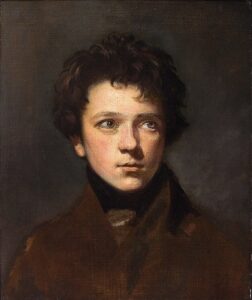 The Honorable Eustace is known to be what one wag called, “a dunderheaded drunken rattle,” and his claims could be easily dismissed but for one fact. Eustace Selwyn had just returned from his home in Dorset, a home that is known to be the neighbor of Mountglen, the duke’s primary seat. He claimed that, while there, he actually observed the brother or a man claiming to be he. Selwyn believes him and asserts that the brother, now calling himself Gideon Kendrick, is not only alive, but much brighter than reported. The Honorable Eustace proposed “cunning,” as the better descriptor. London is not certain what to make of it, but men are lining up on both sides of the bet nonetheless, as young men are prone to do.
The Honorable Eustace is known to be what one wag called, “a dunderheaded drunken rattle,” and his claims could be easily dismissed but for one fact. Eustace Selwyn had just returned from his home in Dorset, a home that is known to be the neighbor of Mountglen, the duke’s primary seat. He claimed that, while there, he actually observed the brother or a man claiming to be he. Selwyn believes him and asserts that the brother, now calling himself Gideon Kendrick, is not only alive, but much brighter than reported. The Honorable Eustace proposed “cunning,” as the better descriptor. London is not certain what to make of it, but men are lining up on both sides of the bet nonetheless, as young men are prone to do.
***
The not so Honorable Eustace Selwyn appears in Caroline Warfield’s, Duke in All But Name, currently in process. In that story the Duke of Glenmoor has indeed gone missing. He and his brother, Gideon Kendrick, first appeared in The Defiant Daughter, as step sons of the heroine. In that story moral and legal complications regarding the circumstances of their birth came to light.
About The Defiant Daughter
 Madelyn assumed marriage as an old man’s ornament would be better than life with her abusive parents. She was wrong.
Madelyn assumed marriage as an old man’s ornament would be better than life with her abusive parents. She was wrong.
Now the widowed Duchess of Glenmoor, she wrestles with ugly memories and cultivates a simple life. She is content. At least, she was until her half-brother returned to Ashmead bringing a friend with knowing eyes and coal black hair to capture her thoughts.
Colonel Brynn Morgan’s days as an engineer in his father’s coal mines in Wales are long behind him. With peace come at last and Napoleon gone, he makes a life for himself analyzing the reports about military and naval facilities worldwide for a shadowy government department. What income he has is committed elsewhere. He has nothing to offer a wife, much less a dowager duchess.
More lies between the duchess and the man she wants than money and class. They have personal demons to slay.
Available for purchase or read for free with Kindle Unlimited. https://www.amazon.com/gp/product/B09GL6PT1J/
About the Author
Award winning author Caroline Warfield has been many things: traveler, librarian, poet, raiser of children, bird watcher, Internet and Web services manager, conference speaker, indexer, tech writer, genealogist—even a nun. She reckons she is on at least her third act, happily working in an office surrounded by windows where she lets her characters lead her to adventures in England and the far-flung corners of the British Empire. She nudges them to explore the riskiest territory of all, the human heart.
Website: http://www.carolinewarfield.com/
Facebook: https://www.facebook.com/groups/WarfieldFellowTravelers
Amazon: http://www.amazon.com/Caroline-Warfield/e/B00N9PZZZS/
Good Reads: http://bit.ly/1C5blTm
Book Bub: https://www.bookbub.com/profile/caroline-warfield
Twitter: https://twitter.com/CaroWarfield
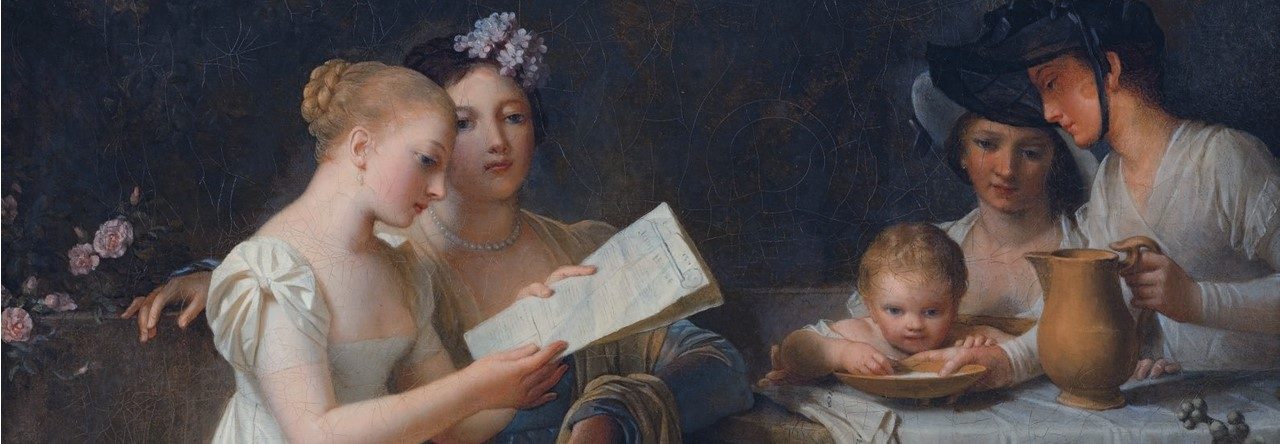

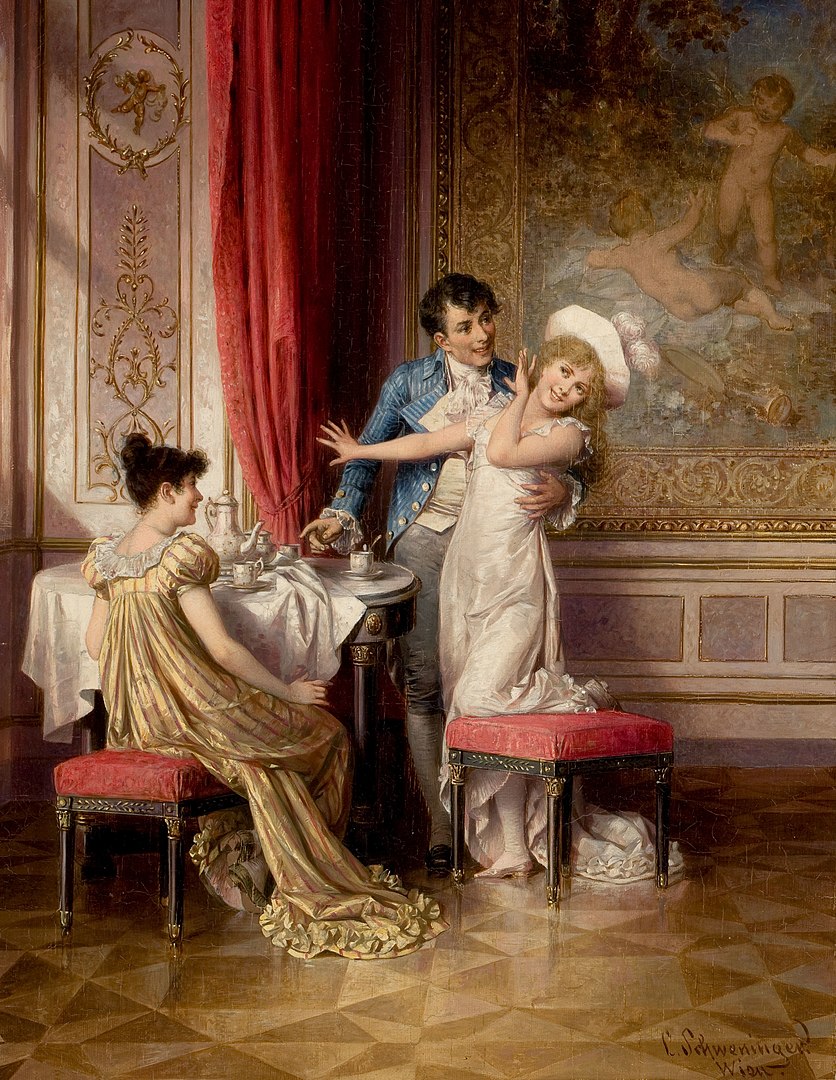 You may understand, then, dear Sir, why I am aflutter with excitement. One could ignore the handful of persistent mamas who inserted ambitious daughters into the party. An unattached earl—particularly one as attractive (dare I say it?) as the earl—is a marital prize they cannot ignore. One can hardly blame them, but one can ignore them. I say that because it quickly became clear that Mrs. Morgan had marshaled the ladies of the family–regrettably not all of them legitimate members—to depress those ambitions. No amount of sprained ankles, lost wandering into the bachelor bedrooms, rearranged seating charts, or manipulated teams for games escaped the vigilance of the earl’s female relatives. I was ready to believe that he actually was not in search of a wife. Almost.
You may understand, then, dear Sir, why I am aflutter with excitement. One could ignore the handful of persistent mamas who inserted ambitious daughters into the party. An unattached earl—particularly one as attractive (dare I say it?) as the earl—is a marital prize they cannot ignore. One can hardly blame them, but one can ignore them. I say that because it quickly became clear that Mrs. Morgan had marshaled the ladies of the family–regrettably not all of them legitimate members—to depress those ambitions. No amount of sprained ankles, lost wandering into the bachelor bedrooms, rearranged seating charts, or manipulated teams for games escaped the vigilance of the earl’s female relatives. I was ready to believe that he actually was not in search of a wife. Almost.
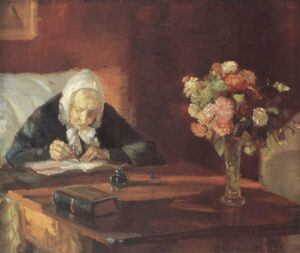 Sir:
Sir: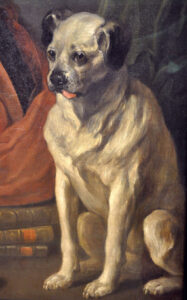 I am quite, quite distressed to add that my precious Wellington, an extraordinarily noble pug, has taken him dislike as well. The impudent young man accused my darling Welly of damaging his boots. I cannot believe poor Welly has developed a taste for leather. He has demonstrated no such affinity in the past. I am certain Mr. Clarke enticed him as an excuse to make a quick departure.
I am quite, quite distressed to add that my precious Wellington, an extraordinarily noble pug, has taken him dislike as well. The impudent young man accused my darling Welly of damaging his boots. I cannot believe poor Welly has developed a taste for leather. He has demonstrated no such affinity in the past. I am certain Mr. Clarke enticed him as an excuse to make a quick departure.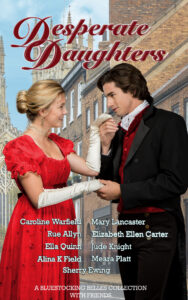 The Earl of Seahaven desperately wanted a son and heir but died leaving nine daughters and a fifth wife. Cruelly turned out by the new earl, they live hand-to-mouth in a small cottage.
The Earl of Seahaven desperately wanted a son and heir but died leaving nine daughters and a fifth wife. Cruelly turned out by the new earl, they live hand-to-mouth in a small cottage.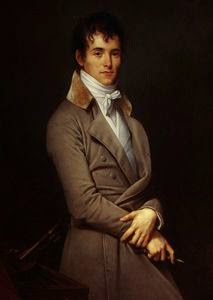 The Duke of G__ arrived in town this week with a highly irregular guest. A Mr. K_, a Welshman with three children stays at the duke’s elegant townhouse where he is being treated almost, dare we say it, as family. Our usual sources—servants do talk, especially when in their cups at certain taverns—imply the men act like brothers.
The Duke of G__ arrived in town this week with a highly irregular guest. A Mr. K_, a Welshman with three children stays at the duke’s elegant townhouse where he is being treated almost, dare we say it, as family. Our usual sources—servants do talk, especially when in their cups at certain taverns—imply the men act like brothers.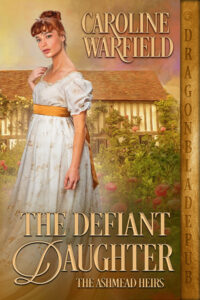 Madelyn assumed marriage as an old man’s ornament would be better than life with her abusive parents. She was wrong.
Madelyn assumed marriage as an old man’s ornament would be better than life with her abusive parents. She was wrong. When the old Earl of Clarion leaves a will with bequests for all his children, legitimate and not, listing each and their mothers by name, he complicated the lives of many in the village of Ashmead. One was his defiant daughter. He left her nothing.
When the old Earl of Clarion leaves a will with bequests for all his children, legitimate and not, listing each and their mothers by name, he complicated the lives of many in the village of Ashmead. One was his defiant daughter. He left her nothing.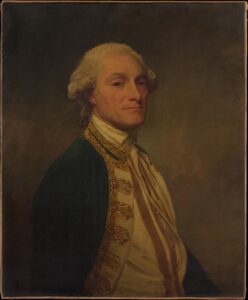 There has been much dissension about needed repairs at Saint Morwenna and the continued neglect by the folks at Clarion Hall who ostensibly endow the holding. The Earl of Clarion, as you know, prefers his house in London and the fleshpots over to the simple joys of Ashmead.
There has been much dissension about needed repairs at Saint Morwenna and the continued neglect by the folks at Clarion Hall who ostensibly endow the holding. The Earl of Clarion, as you know, prefers his house in London and the fleshpots over to the simple joys of Ashmead.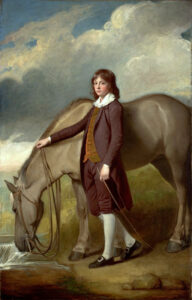 PS I held this missive waiting a few extra pennies for postage. I’m glad I did. This will shock you. Last time the young viscount came home, he found his favorite hound and his prize gelding gone, sold on his father’s orders. Elsbeth Simmons says, when he came here between winter terms, he encountered Alice Wilcox, her all of nine years old. Maybe just took a good look for the first time. The nipper is a Clarion butter stamp for sure. Looks just like the viscount, his sister, and truth be told, the oldest Benson boy from up at the Willow, the one that ran off to war. Was in a taking about her treatment.
PS I held this missive waiting a few extra pennies for postage. I’m glad I did. This will shock you. Last time the young viscount came home, he found his favorite hound and his prize gelding gone, sold on his father’s orders. Elsbeth Simmons says, when he came here between winter terms, he encountered Alice Wilcox, her all of nine years old. Maybe just took a good look for the first time. The nipper is a Clarion butter stamp for sure. Looks just like the viscount, his sister, and truth be told, the oldest Benson boy from up at the Willow, the one that ran off to war. Was in a taking about her treatment.